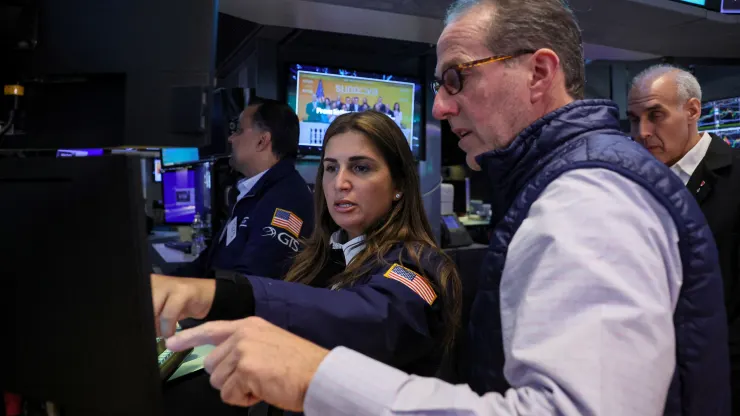
The S&P 500 ended flat on Friday, touching a record-high intraday, despite a stronger-than-expected jobs report.
The broad market index slipped 0.11% to close at 5,346.99, after reaching an all-time high earlier in the session. The Dow Jones Industrial Average slipped 87 points to 38,798.99. The Nasdaq Composite edged down 0.23% to finish the session at 17,133.13.
All three of the major averages notched a winning week. The Dow posted a 0.29% gain, while the S&P 500 added nearly 1.32% and the Nasdaq advanced 2.38%.
Stocks are rebounding from pressure earlier in the session following Friday’s jobs report. That news sent the yield on the benchmark 10-year Treasury more than 15 basis points higher.
Nonfarm payrolls increased by 272,000 in May, above the 190,000 estimate from Dow Jones and April’s 175,000 gain. Average hourly wages increased 0.4% last month and ticked up 4.1% from a year ago. However, even with the job gains, the unemployment rate ticked higher to 4%.
Investors had been hoping for weak jobs figures on a hunch it would give the Federal Reserve the greenlight to cut rates later this year. Now, with the labor market showing continued resilience, Wall Street seems focused on the idea that the economy is strong enough to keep growing without the help of lower interest rates.
“We should all be happy that we’ve got a strong economy,” IBM vice chairman and former National Economic Council Director Gary Cohn told CNBC’s “Squawk on the Street” on Friday. “At the end of the day, it’s all about the economy, it’s all about GDP growth, GDP corporate earnings, the health of the consumer, [and] that’s going to win out all of the time in the long run.”
The jobs report comes after the European Central Bank on Thursday cut rates for the first time since 2019, adding pressure to the Fed to potentially lighten up on policy. The Fed will give its decision on rates next week after its June 11-12 policy meeting.
Chipmaker and artificial intelligence darling Nvidia closed down slightly on Friday, but still ended the week up 10%. The stock set a record high on Thursday after pushing past the $3 trillion mark for the first time on Wednesday.
























